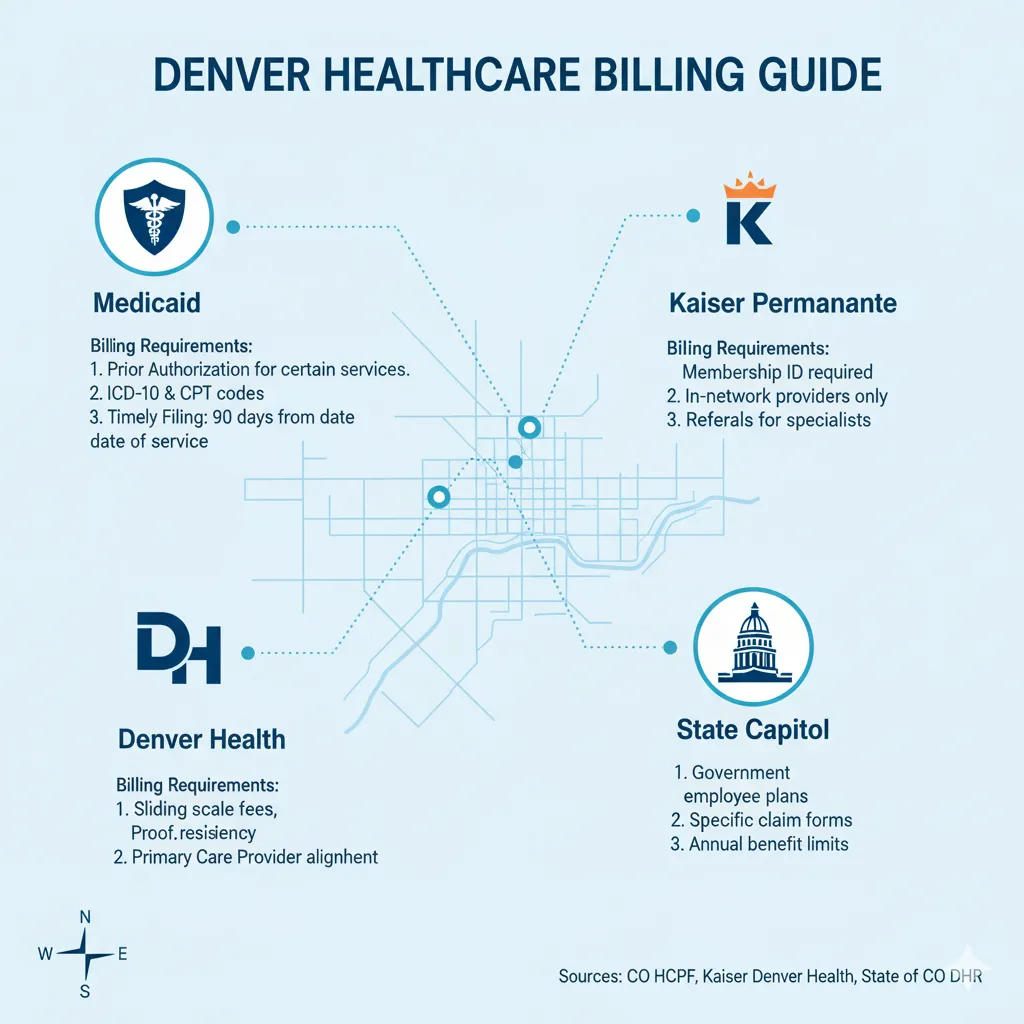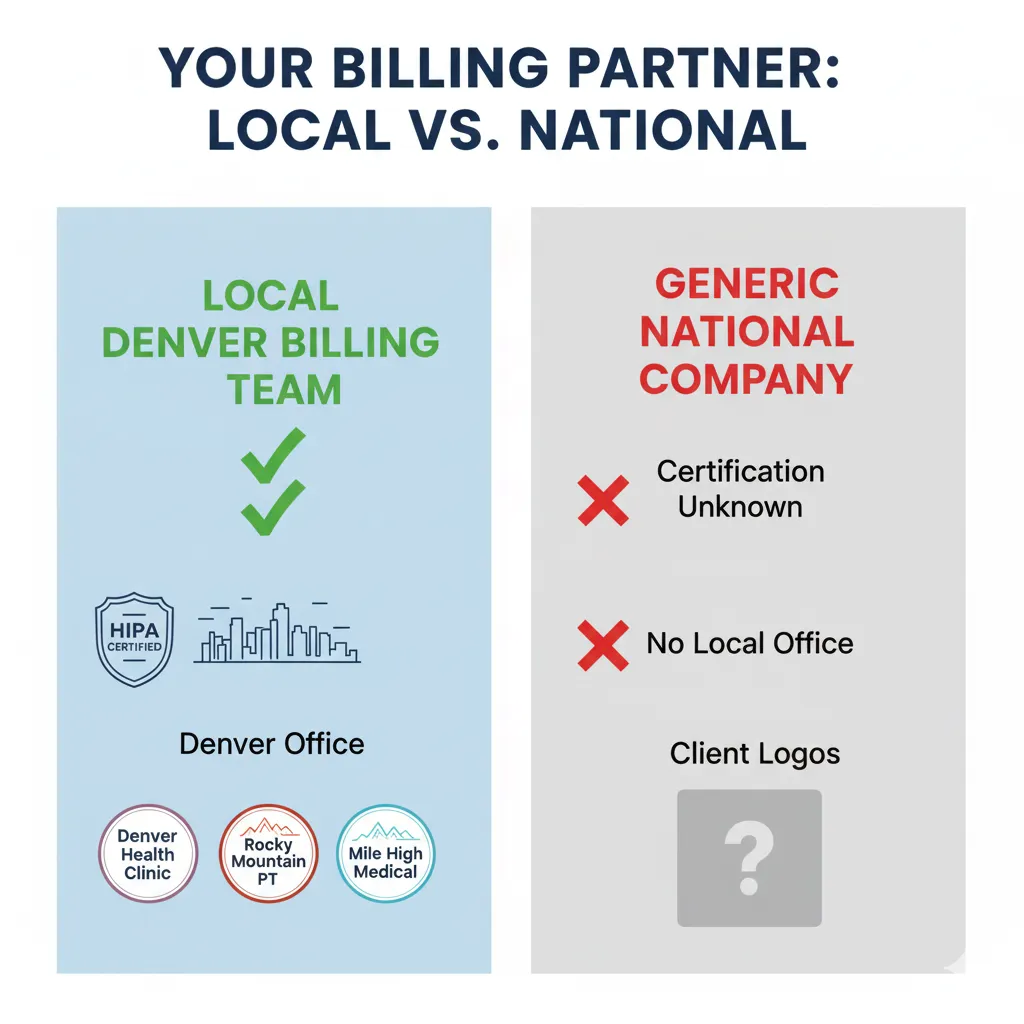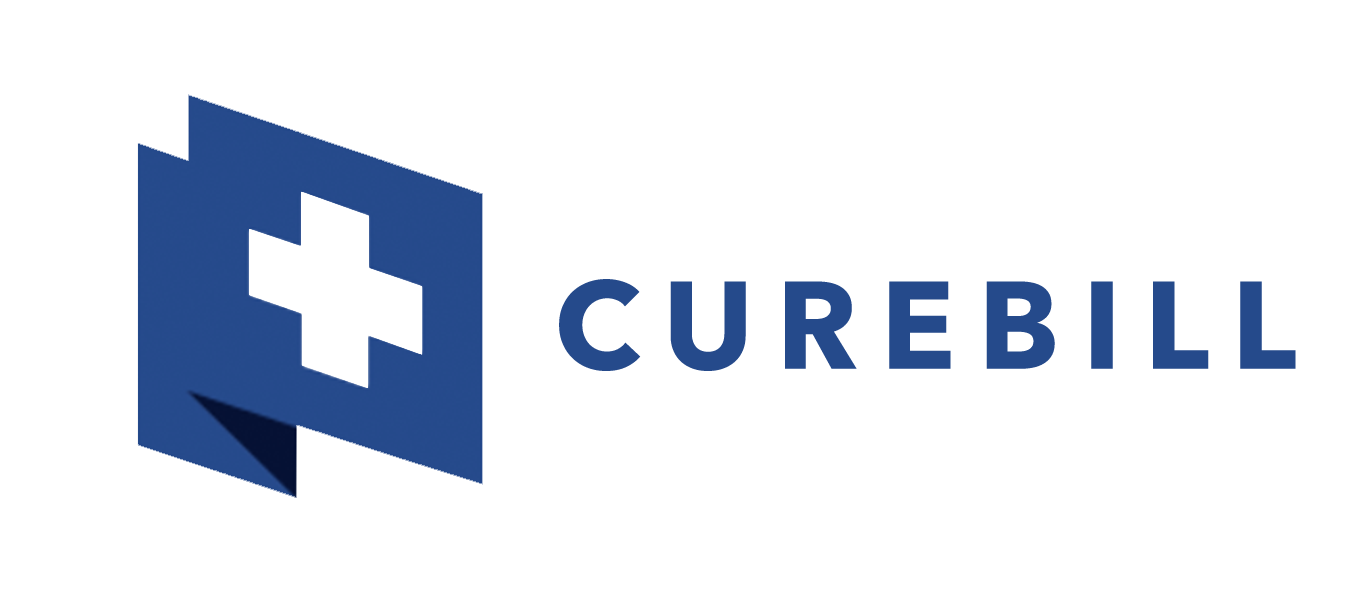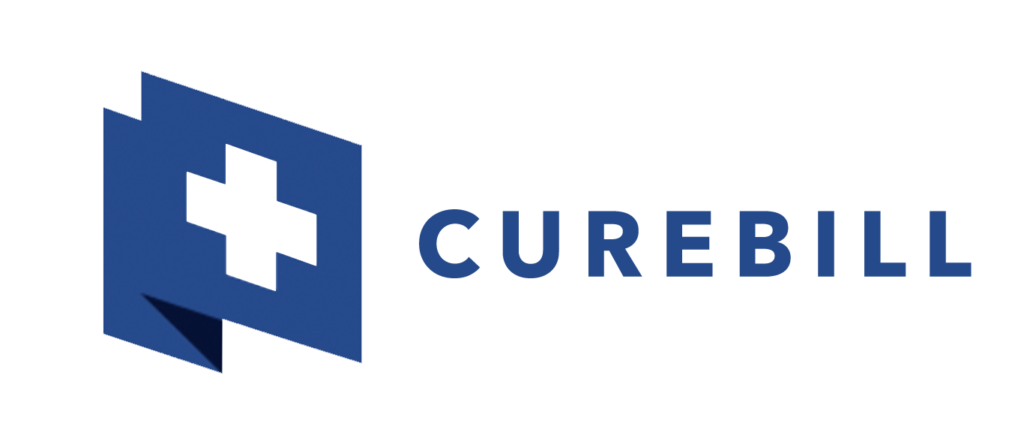
Why Denver Clinics Outsource Billing in 2025
Running a small medical practice in Denver today is harder than ever, Between rising rent in LoDo, staffing shortages in Aurora, and the constant headache of insurance denials, many solo providers and small group practices are asking: “Is it time to outsource our billing?”
The answer, for more than half of Denver’s independent clinics in 2025, is a resounding yes. But not all medical billing companies are built for Denver’s unique healthcare landscape. In this guide, we’ll explain.!
- Why local clinics from Capitol Hill to Highlands Ranch are making the switch
- What makes billing in metro Denver different from other cities
- And how to choose a trusted, local billing partner who actually understands your practice
Let’s dive in.
The Real Cost of In-House Billing for Denver Clinics
Many small practices start with in-house billing because it “feels” more in control. But the hidden costs add up fast:
- Staff turnover: Finding and training a certified biller in Denver’s tight labor market can take 3 to 6 months and cost $15K+ in lost productivity.
- Software fees: EHR + billing software subscriptions often run $300 to $600/month.
- Denial losses: The average Denver clinic loses $12,000 to $20,000/year to preventable claim rejections.
- Time drain: Physicians report spending 6 to 10 hours/week chasing payments instead of seeing patients.
Outsourcing isn’t just about saving money it’s about reclaiming your time, reducing stress, and getting paid faster.
What Makes Medical Billing in Denver Unique?
Colorado’s healthcare system has quirks that national billing firms often miss. A great Denver medical billing service understands.
Health First Colorado (Medicaid) Rules
- Requires specific modifiers (e.g., U1 to U9 for FQHCs)
- Tight 90 day timely filing window
- Prior authorization needed for many behavioral health services
Local Payer Nuances
- Denver Health: Has unique contract terms for community providers
- Kaiser Permanente Colorado: Requires detailed documentation for E/M coding
- Rocky Mountain Health Plans: Strict policies on telehealth billing
State Laws That Impact Billing
- Colorado’s Surprise Billing Law (SB21-175): Requires clear patient notices for out-of-network care
- Data privacy rules: Stricter than federal HIPAA in some cases

Who’s Outsourcing Billing in Metro Denver?
It’s not just one type of practice. Here’s who’s making the switch in 2025.
- Solo primary care doctors in Capitol Hill and Washington Park
- Behavioral health therapists in Cherry Creek and Stapleton
- Urgent care centers in RiNo and near downtown Denver
- Specialty clinics (dermatology, ortho, pain management) in Highlands Ranch and Lone Tree
- FQHCs and community health centers serving Montbello and Globeville
5 Signs It’s Time to Outsource Your Billing in Denver
Ask yourself:
- Are your accounts receivable over 45 days?
- Is your denial rate above 10%?
- Do you spend more than 5 hours/week on billing tasks?
- Have you lost a biller in the last year?
- Are you missing out on telehealth or prior auth revenue?
If you answered “yes” to 2+ questions, outsourcing could be your best move.
How to Choose the Right Medical Billing Partner in Denver
Not all billing companies are equal especially when you’re looking for medical billing services near me in Denver. Here’s what to look for.!
1. Local Presence & Experience
Ask: “Do you work with clinics in Denver? Can you share examples?”
Avoid firms that say “we serve Colorado” but are based in another state. Local = faster response, in person meetings, and real understanding of Denver Health Network or Health First Colorado workflows.
2. Certified, In House Team
Look for CPC, CPB, or CRC-certified billers not offshore contractors. Ask about training, turnover, and HIPAA compliance audits.
3. Transparent Pricing
Most Denver providers pay 4 to 7% of collections. Beware of hidden fees for setup, software, or patient statements.
4. Real Time Reporting
You should access dashboards showing.
- Daily claims submitted
- Denial reasons (e.g., “missing modifier,” “timely filing”)
- A/R aging by payer (Medicaid vs. private)
5. Specialization in Your Field
A billing company that handles only labs won’t understand behavioral health CPT codes. Choose a partner with experience in your specialty.

What to Expect When You Switch (Timeline & Results)
Most Denver clinics see results fast:
- Week 1 to 2: Onboarding, EHR integration, claim history review
- Week 3 to 4: First clean claims submitted
- Month 2: Denial rate drops by 30 to 50%
- Month 3: A/R days reduced by 20 to 35%
Why CureBill Is Trusted by Denver Clinics
At CureBill, we’re not a faceless national vendor. We’re a Denver based medical billing team that’s helped 50+ local practices from Five Points to Lone Tree get paid faster and stay compliant.
We specialize in:
- End to end billing for primary care, behavioral health, urgent care & specialties
- Health First Colorado & Medicare Advantage expertise
- Denial management with root cause analysis
- Full HIPAA compliant RCM with no long-term contracts
Ready to Transform Your Revenue Cycle?
If you’re a small clinic in Denver, near downtown, or serving metro Denver, you deserve a billing partner who gets your challenges and delivers results.
Schedule Your Free Denver Billing Audit
We’ll review your last 30 days of claims and show you exactly how much you could recover.
The best medical billing service for a small clinic in Denver is one that’s local, certified, and experienced with Colorado Medicaid (Health First Colorado) and major insurers like Kaiser Permanente CO. Look for transparent pricing, real-time reporting, and proof of results with similar Denver practices.
Most Denver medical billing companies charge 4% to 7% of collections. Some offer flat monthly rates for small practices. Avoid hidden fees for setup, software, or patient statements. Always ask for a clear breakdown before signing.
Yes—but only if they understand Colorado Medicaid’s specific rules, including timely filing (90 days), required modifiers, and prior authorization for behavioral health. Ask for their denial rate on Medicaid claims before hiring.
Most Denver clinics can fully transition in 7–14 days. A good billing partner will handle EHR integration, claim history review, and staff training with minimal disruption to your workflow.
Yes! Several Denver-based medical billing companies serve local clinics, including CureBill. Look for firms with a physical office in metro Denver and experience with local payers like Denver Health and Rocky Mountain Health Plans.
With a qualified billing partner, Denver clinics typically see denial rates drop to under 8%—compared to 15–25% with in-house or inexperienced billing. The key is proactive denial management and payer-specific workflows.
No. Reputable Denver medical billing companies offer month-to-month agreements so you’re not locked in. This shows confidence in their performance and gives you flexibility.

